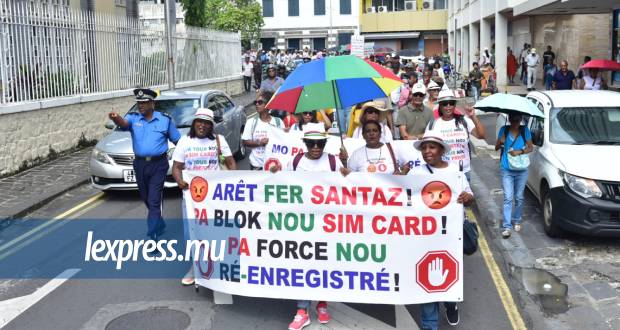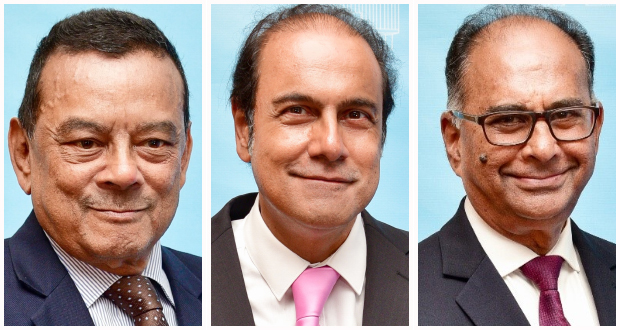Publicité
In This Year of Elections Democracy Remains the Best Form of Governance
Par
Partager cet article
In This Year of Elections Democracy Remains the Best Form of Governance

Recently on September 15, we marked the International Day of Democracy, when around the world we celebrate the principles of democracy and highlight the importance of safeguarding and promoting democracy. This is especially important in 2024 which has been an historic year for democracy, with an unprecedented number of countries holding elections. As the International Foundation for Electoral Systems (IFES) has noted, close to four billion people in more than 90 countries will participate in elections this year, including of course Mauritius and the United States. Ironically, the profusion of elections is occurring at a time when we see democracy under siege from forces seeking to roll back the democratic gains achieved in the post-cold war period. Freedom House in its 2023 report on the status of democracy globally noted that democracy is under attack by autocratic aggression, violence, electoral manipulation, and the undermining of democratic institutions. Some anti-democratic leaders criticize democracy’s very premise and the idea that citizens should have a greater voice in their political futures. Others are more subtle, claiming popular support but then eliminating or suppressing their political opposition and limiting the space for voter engagement. However, as Winston Churchill noted, “It has been said democracy is the worst from of government, except for all those other forms that have been tried. . .” Ultimately, it has been the democratic countries which have seen the best results in social and economic development, and those led by an autocrat or oligarchy typically fail as one person, or even a select few, can never have all the answers to national problems. I write this article to emphasize that in this important year, we global citizens, who are fortunate to be able to take part in a democratic process, whether in Mauritius, the United States, or other countries, should embrace our fundamental freedoms, engage fully in the elections, and support the strengthening of democracy globally.
The end of the cold war over thirty years ago initially saw a rapid spread of democracy around the world. Countries that had been under the totalitarian yoke of former Soviet Union quickly embraced the opportunity for greater freedom and self-determination. Many countries outside the Iron Curtain found similar inspiration for change. However, in the subsequent decades, we have seen an erosion of those gains. In some countries, military coup d’etats have led to the overthrow of elected officials; others have killed or suppressed their political opposition and conducted sham elections. In some cases, leaders have simply rejected the premise of democracy and promoted autocratic or single-party rule. More discrete approaches, often called “illiberal democracy,” involve retaining the trappings of constitutional democracy, but undermining the independent institutions, like the press, courts, prosecutors, and others to prevent them from maintaining necessary checks and balances in the system. We have seen some examples of elections this year, such as in Russia, where subtle and not so subtle tactics were used, including those that resulted in the death of opposition leader Alexei Navalny, to prevent its citizens from truly exercising their rights as citizens as enshrined in the International Covenant on Civil and Political Rights.
Critics of democracy claim it is a messy system that sows tension and division within a country and that it is not as efficient or able to respond to the rapid changes of modernity. However, as Churchill noted, while democracy is certainly not perfect, rule by an autocrat or a single party has been shown throughout history to be more likely to fail. One person, or even a select few, are not able to respond effectively to the many challenges our societies presently face. As we saw in China, the draconian lockdowns in response to COVID had a terrible impact on their communities and economy – but no alternative voices or policies were given room for debate. What is evident time and time again is that the more autocratic the rule, the more brittle it becomes.
We can certainly find fault with democratic countries and the inability to address many key social and political problems. The United States continues to confront economic inequality, discrimination, and environmental degradation. We recognize the persistent struggle to create that “more perfect union” to which we committed to in our founding Constitution. However, by staying the course, we can see that the U.S. democratic process has helped in sustaining the country’s resilience in the face of great challenges. In the years following COVID, the U.S. economy has seen a dramatic improvement, with very low unemployment, the highest grate growth rate of the G-7 countries, and inflation down to just over three percent this year. As The Economist magazine noted last year, “America’s economic outperformance is a marvel to behold.” This pattern of successful adaptation and policy flexibility is also evident with many advanced democracies as opposed to those more autocratic governments which have taken more precipitous or problematic policies unhampered by the real accountability to their people.
Mauritius is another clear example of how democracy provides a foundation for prosperity. Around the time of the country’s independence, its future seemed bleak. Nobel Prize-winning economist James Meade wrote in 1961: “It is going to be a great achievement if [Mauritius] can find productive employment for its population without a serious reduction in the existing standard of living . . . [T]he outlook for peaceful development is weak.” However, since independence as an International Monetary Fund (IMF) case study noted:
Between 1973 and 1999, real GDP in Mauritius grew 5.9 percent a year, on average, compared with 2.4 percent for sub-Saharan Africa as a whole. Through the magic of compounding, the income of the average Mauritian more than tripled over a 40-year period, while that of the average African increased by only 32 percent.
With limited natural resources, aside from an intensive monoculture sugar industry, Mauritius instead had to focus on its human resources and the talent of its people for its future development. I believe a direct relationship can be found between the fact that Mauritius has maintained a vibrant, stable democracy in its post-colonial history and its success in achieving economic and social progress. The peaceful transfers of power and the ongoing engagement of the Mauritian people in their governance allowed for the country to leverage its people’s skills and abilities to advance its prosperity.
Therefore, the lesson from Mauritius’ experience, and that of other democracies, is not of chaos or social division but of the dynamic progress. Political differences can seem divisive, but they contribute to the debate over policy choices and offer alternative views on how to address fundamental national challenges. While critics of democracy see these divisions as a weakness, history has shown them as a strength. Though, a key factor in for democracy to succeed is an educated and engage electorate. As the third U.S. President Thomas Jefferson wrote, “The people are safe depositories of their own liberty, and . . . are not safe unless enlightened . . . .” Voters should not be swayed by disinformation or even discouragement to participate in election. We have and will continue to see political commentary, social media, and other messages seeking to undercut the efficacy and value of democratic institutions, but in the face of those efforts, citizens need to be even more committed.
I hope Mauritian voters will engage in understanding their political candidates’ policies and positions and participate in your elections -- just as I hope U.S. voters will do so in November. With its many elections, this year will be an inflection point for the future of democracy globally. We all have important role in safeguarding the fundamental rights of the international community to participate in an open and fair political process. While we may be discouraged by the flaws and the discordance, democracy remains the best system of governance when compared to all the others.
Publicité
Les plus récents






